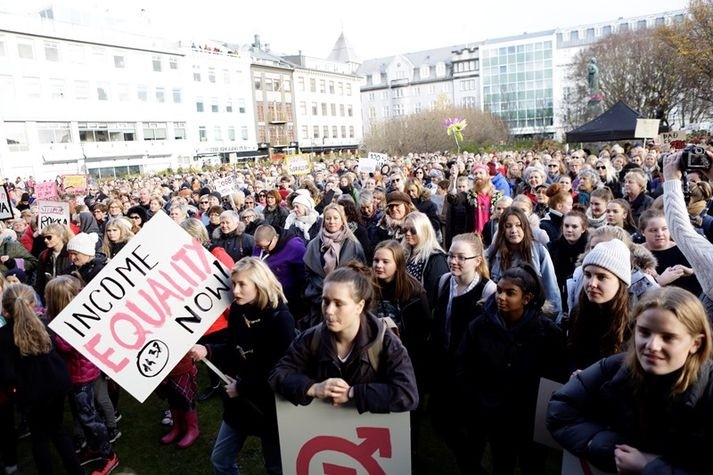Wage disparity based on sex is illegal in several countries such as the UK, Russia, and Rwanda. This doesn’t change the fact that women often face sex discrimination in the workplace and, in fact, do get paid less than men for the same or similar job.
In most countries, an employee who believes their pay is unfair has the legal right to take their employer to court, but in reality, the process takes a long time and is very costly for the employee who is probably already underpaid. So while the law against unequal pay exists, it does not actually empower people to go to court and demand a fair wage.
Already leading the world in gender equality for nine years, Iceland’s new law will assure women’s right to equal pay better than before. As of 2018, “it is a criminal offence for employers not to take action on unequal pay.”
Companies with over 250 employees must comply with this law by the end of the year, whereas smaller institutions are given time till the end of 2021. The employer’s punishment for not conforming to the law is a fine of ISK 50,000 (about €400) per day, and “the public shame, it is hoped, will be worse.”

Maríanna Traustadóttir, the equal rights and environmental specialist of The Icelandic Confederation of Labour, thinks that this new law will impact Iceland’s attitudes about gender roles because employers will be forced to think differently about their employees.
Is this gender-equal wage system only possible on an idyllic island in the north or can other countries apply it as well? We would like to think that it’s only a matter of will, but cultural predispositions cannot be undone en masse overnight.
Iceland’s policy was gradually built up and facilitated by existing social cohesion. With a population of only 350,710 (1 March 2018), of which two-thirds are concentrated in the capital city Reykjavík, influencing and mobilising people is easier than in larger nations. Iceland was already a leader in feminist policies so the new one does not come as a massive surprise.
Richard Reeves, who studies pay gaps in various countries and industries, says, “it’s unwise to assume that one country’s policies can apply elsewhere.” Cultural local attitudes and resistance matter; for a country that holds very strong patriarchal traditional views, equal pay policies with an effective application are not on the agenda. However, that is not to say it is not possible. There are several effective organizations working to further gender equality in the world, you can find two below.
- Plan International - Works to advance children’s rights and equality for girls by supporting youth-led activism on women's rights.
- IWDA - IWDA promote women's leadership and participation in political, economic, and social life to advance systemic change in gender equality. So far IWDA has helped 848 women assume leadership positions.




